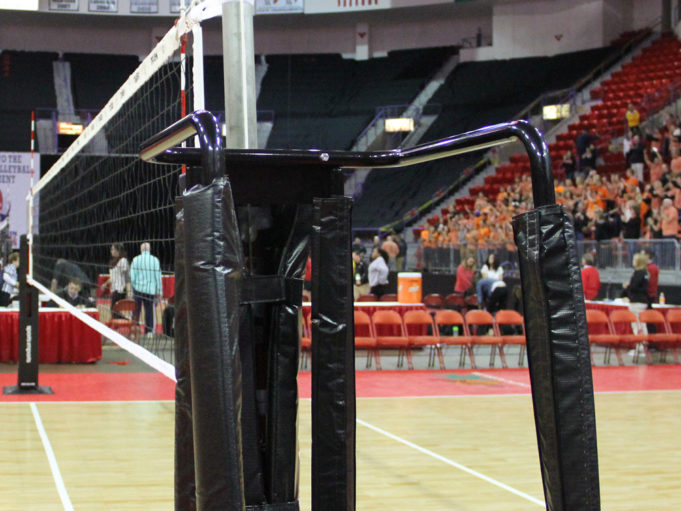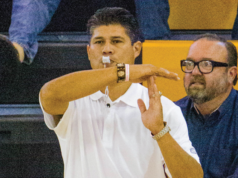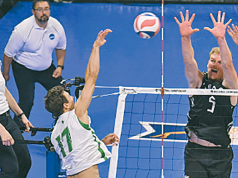We just want to be understood. It’s human nature, especially when it comes to officiating — we want people to know, understand and accept why we made a call. And usually we need to rely on our second referee partner to do the explaining for us. But what if they don’t say the right thing? What if they didn’t see what we saw? What if they don’t know why we made the call? Well, there’s only one chance for us to state our case, and that’s when we get off the stand after the match, right? Wrong.
It’s a no-win situation for referees who attempt to justify, clarify or explain a call to the coach who just lost (or won). Ultimately, they probably know why we made the call, but they still have to fight for their team, even after the fact. That’s their job, right?
In USAV and high school/junior high matches, referees have some post-match responsibilities with the scoresheet. That can be a dangerous necessity — necessary because you have to finalize the scoresheet, and dangerous because of the temptation it offers to have a conversation. As you walk across the court toward the scoretable, your eyes search for the coach who was questioning you during the match, as if you’re seeking that open door. But opening that door can surely put you in the line of fire. Occasionally a coach may seek you after a match to get an explanation. And that’s a situation to avoid, too.
In the collegiate game, we “tootn- scoot” at the end of the match. That prevents us from approaching a coach after a controversial call or situation, and likewise doesn’t give them the opportunity to approach us. But that doesn’t mean an inquiring spectator can’t catch you before you get to the locker room. Have you ever had that spectator sitting right behind you during the match, constantly yelling in your ear? And, of course, he or she doesn’t even know the rules. If you could just explain a couple of things so that they’re “educated” spectators, things would be much better, right? Nope, not true. Spectators are the most biased people in the gym — referees can’t win. So how do we override our human nature, our desire to be understood?
First, we have to rely on proper signals, mechanics and officiating procedures to speak for us. When we whistle a fault, what we’ve seen should be clear to everyone. Our signals tell the story. When we don’t make a call that a coach thinks we should have, how many reasons can there be for the no-call? Either we saw the play and ruled it legal, or we were screened from clearly seeing the play, so we couldn’t make a call. That should cover about 99 percent of the questions. There’s no need to justify anything, and despite coaches questioning a call (and you wanting to answer it), they really do understand that basic reality — you called what you saw. Remember, they still have to fight for their team.
Secondly, at the end of the match, emotions can be high. It’s hard to have a reasonable conversation under those circumstances, but our human nature makes us think that if we could just explain the call, everyone will feel better. It just doesn’t happen that way. It’s important that you know that fact so that you aren’t tempted to try to make things “better” with an explanation that may throw gasoline on the fire, despite your best efforts. It’s imperative that you do not seek a coach after the match. It will only hurt you in the long run. And if a coach seeks you, a courteous, “Coach, I appreciate your comments” is all you need to say. Anything more than that and you will be loading the gun for them.
But what about that coach or spectator who seems to have a friendly, reasonable question? Don’t take the bait. Too often, your words or explanation will be used against you. It’s easier to justify to an assigner why you didn’t answer a question after the match than it is to explain why you had the conversation that led to a more heated debate, a more severe criticism of your work, or an unnecessary conversation with a spectator. Your post-match debrief with your officiating crew is your sounding board. They’re the ones who will understand you.
What's Your Call? Leave a Comment:
Note: This article is archival in nature. Rules, interpretations, mechanics, philosophies and other information may or may not be correct for the current year.
This article is the copyright of ©Referee Enterprises, Inc., and may not be republished in whole or in part online, in print or in any capacity without expressed written permission from Referee. The article is made available for educational use by individuals.

















